Incredible Facts About the Dead Sea
Earth’s Lowest Point
The Dead Sea, often termed nature’s paradox, holds the title of being the lowest point on Earth’s surface. Situated at a staggering 430 meters (1,412 feet) below sea level, it gives new meaning to the phrase “below the surface.” This unique geographical trait makes it a magnet for geologists and tourists alike. Visiting the Dead Sea means standing at the Earth’s nadir, a place that consistently amazes due to its paradoxical nature. On a clear day, witnessing the dramatic descent from the surrounding Judean Desert is a sight to behold. The sheer notion of standing so far below sea level while gazing at the vastness of the Dead Sea is enough to intrigue anyone’s curiosity.
You Can Float Without Trying
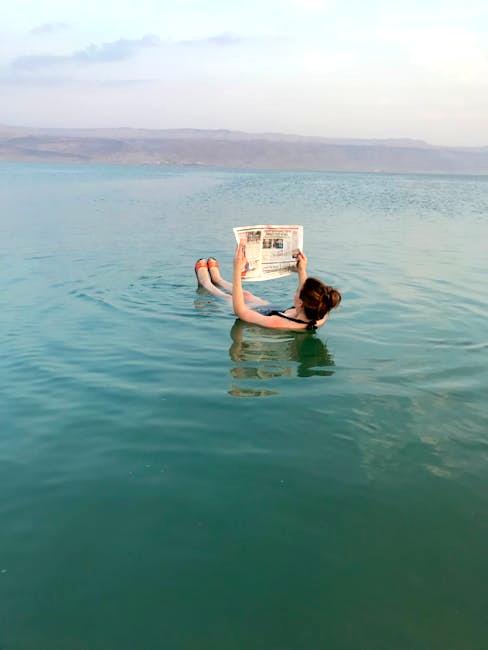
If you’ve ever doubted your swimming skills, the Dead Sea could be your perfect destination. Thanks to its 34% salt concentration, the waters are so dense that people naturally float. Imagine lounging on water without any effort, simply engulfed by the dense saline embrace. For non-swimmers, this experience is both reassuring and exhilarating. The buoyancy created by the heightened saline content ensures that even the most apprehensive can relax and enjoy the unique sensation of gliding effortlessly atop the water. Such experiences make for unbeatable memories and photographs, with many visitors capturing themselves reading a newspaper or sipping a drink while effortlessly afloat.
It’s Not Actually a Sea
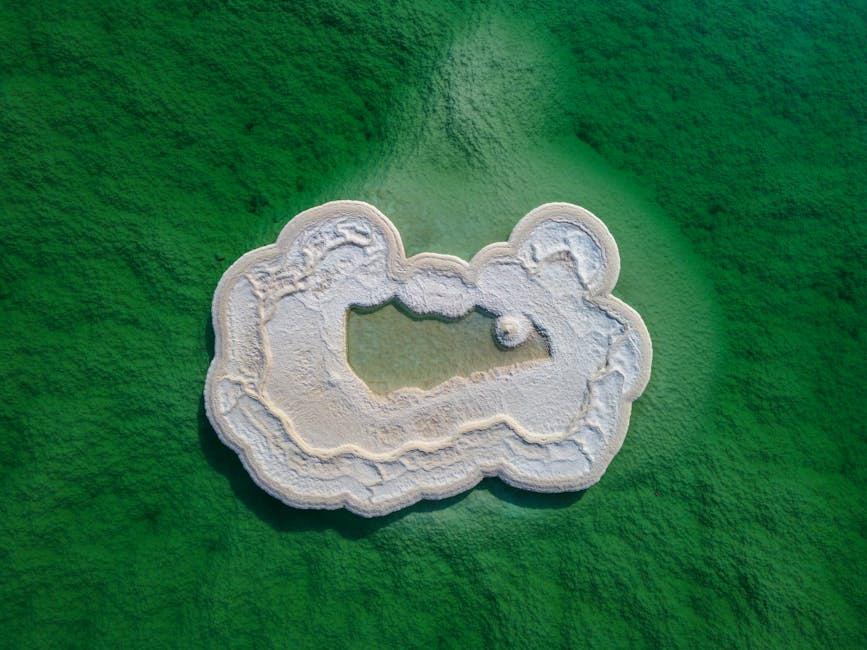
Contrary to its name, the Dead Sea isn’t a sea but a hypersaline lake. This misnomer is a source of intrigue and sparks curiosity. It’s fed by the Jordan River, yet, it has no natural outlet. As the water evaporates, the salts and minerals are left behind, resulting in its renowned salinity. This process not only shapes the basin’s landscape but also influences its ecosystem. Understanding the nuances of this “sea” provides insight into its allure and mystery. The lack of outlets makes it different from conventional seas, adding a unique characteristic to global watershed systems.
No Life in the Dead Sea
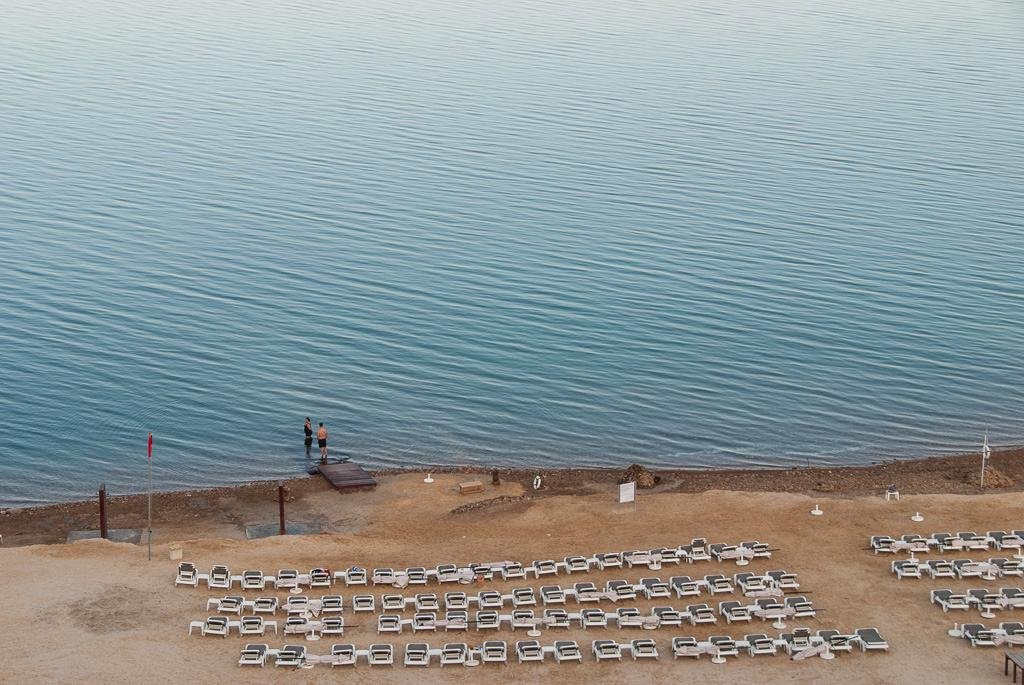
While it might sound eerie, the Dead Sea is aptly named due to its inability to host most aquatic life. The extreme salinity is inhospitable to fish and plants, leading to a stark contrast when compared to thriving ecosystems elsewhere. However, small wonders exist beneath the surface in the form of unique microorganisms that have adapted to survive. These extremophiles are an example of nature’s resilience, adapting to survive conditions that would deter other life forms. Their existence adds another layer to the Dead Sea’s mystery and highlights how life finds a way, even in seemingly impossible circumstances.
Healing Properties
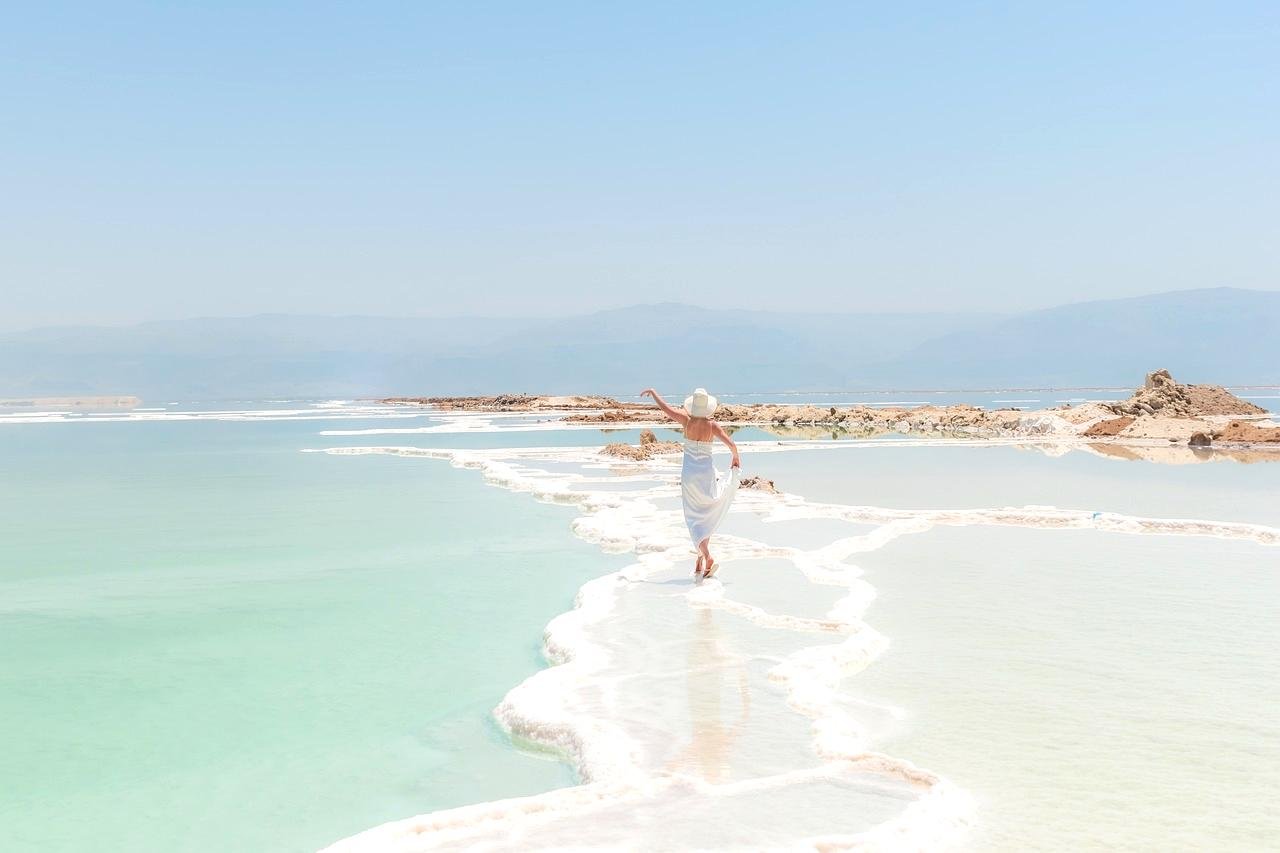
For centuries, the Dead Sea has been heralded for its therapeutic properties. With its rich mineral composition, it has become a natural spa destination, offering varied skin and health benefits. The high concentration of salts and minerals aids in conditions like psoriasis and eczema. It’s not uncommon to see visitors smearing the unique black mud over their bodies to exfoliate and rejuvenate their skin. The Dead Sea’s mineral-rich waters are a magnet for those seeking natural remedies, making it a sought-after locale for individuals looking to harness these natural benefits.
A Shrinking Wonder
Despite its majesty, the Dead Sea is shrinking at an alarming rate. Losing about one meter (three feet) of its water level annually, the future of this natural marvel is under threat. Reduced water inflow and increased evaporation are accelerating its decline. This phenomenon is not only impacting its physical size but also the unique ecosystem that it fosters. The receding shores reveal salt formations and land previously submerged, providing a somber reminder of the challenges facing this captivating wonder. It’s a call for awareness and action to preserve this unparalleled natural resource for generations to come.
Biblical Significance
The allure of the Dead Sea extends beyond its unique geographical and ecological features. It holds a sacred place among religious and historical narratives, prominently mentioned in biblical texts. Its proximity to ancient cities such as Sodom and Gomorrah lends it a profound sense of history. Pilgrims and historians visit its shores to connect with its rich spiritual past, viewing it as a testament to ancient civilizations and divine narratives. The Dead Sea’s biblical connections make it a site of pilgrimage and contemplation, inviting visitors to reflect on its intricate past.
Earth’s Oldest Spa
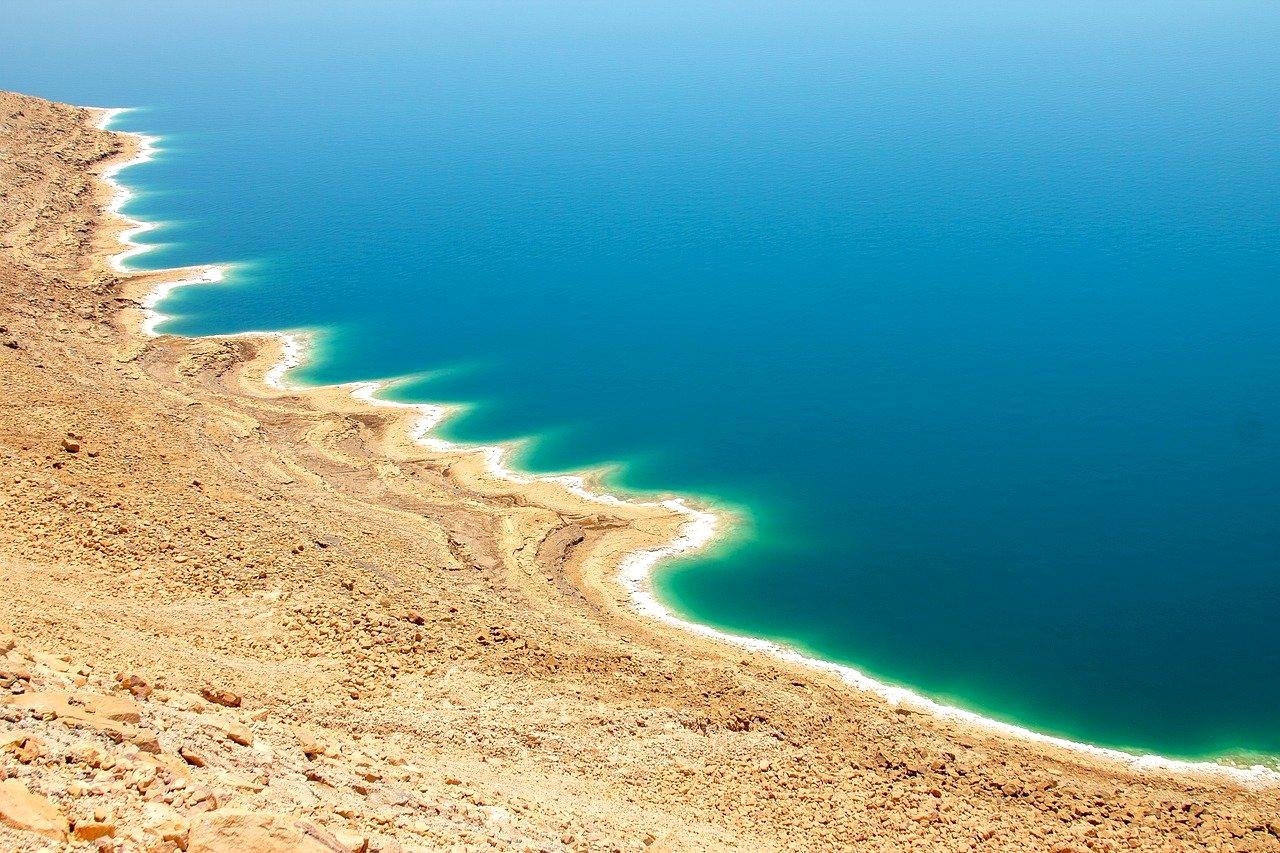
Dating back to ancient times, the Dead Sea has been revered as a spa destination by historical figures. Cleopatra and King Herod, among others, are said to have bathed in its mineral-rich waters, seeking health and beauty benefits. The Dead Sea’s enticing blend of minerals, combined with the arid desert climate, creates a natural allure for those pursuing long-lasting health and beauty. Its longstanding reputation as a wellness hub continues to intrigue and inspire, drawing thousands annually to partake in its age-old allure and secrets.
Salt Formations Are Stunning
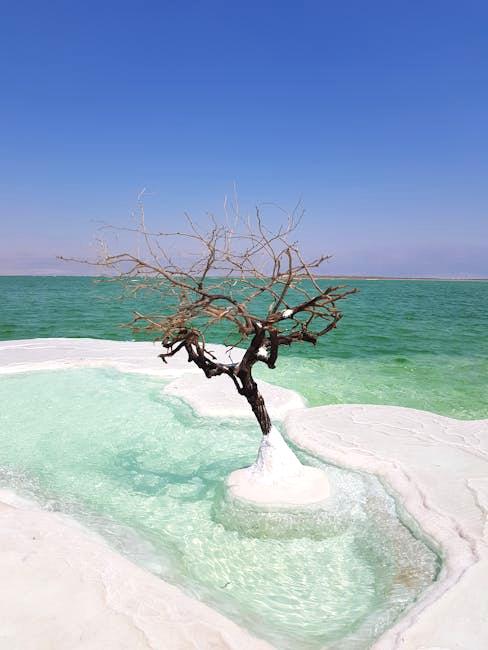
The shores of the Dead Sea offer a visual treat with stunning salt formations that captivate and inspire. These formations, naturally sculpted by the action of water, air, and time, appear as otherworldly, crystalline landscapes. From large pillars to delicate, crystal-like structures, visitors are treated to a gallery of natural art created by the hand of nature. These formations bear silent witness to the geological processes that have shaped the region over millennia, rendering the Dead Sea not only a point of scientific interest but also a natural spectacle.
It’s Too Salty to Drink
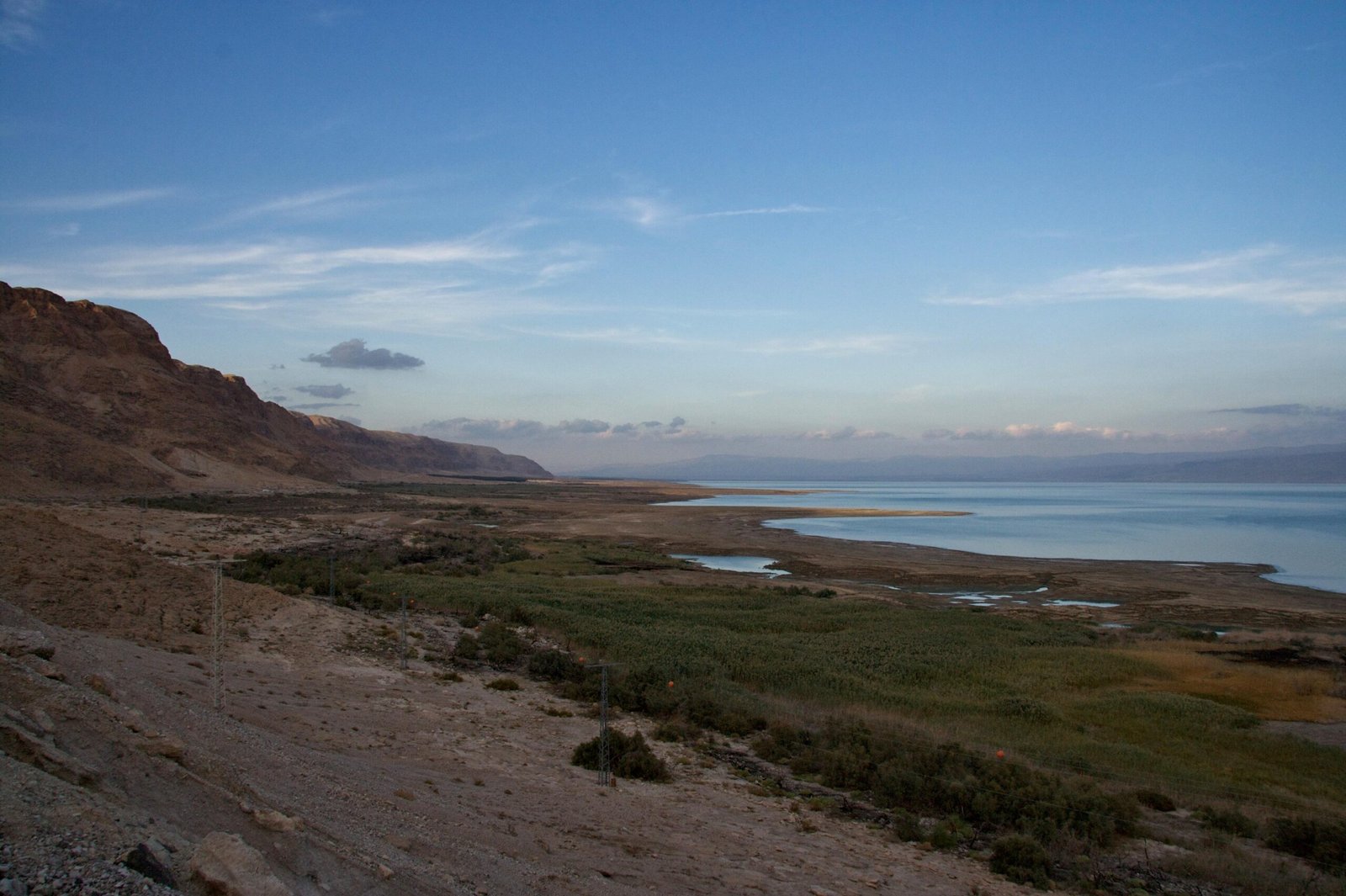
The waters of the Dead Sea are profoundly salt-laden, so much so that drinking it is not only unpleasant but potentially harmful. Instead of quenching thirst, it can worsen dehydration, causing serious health issues. The high salt content can lead to immediate discomfort and more severe health concerns if consumed in substantial quantities. Highlighting the extreme conditions and unique characteristics of the Dead Sea, this fact emphasizes the delicate balance between its natural wonder and the necessary safety precautions.
